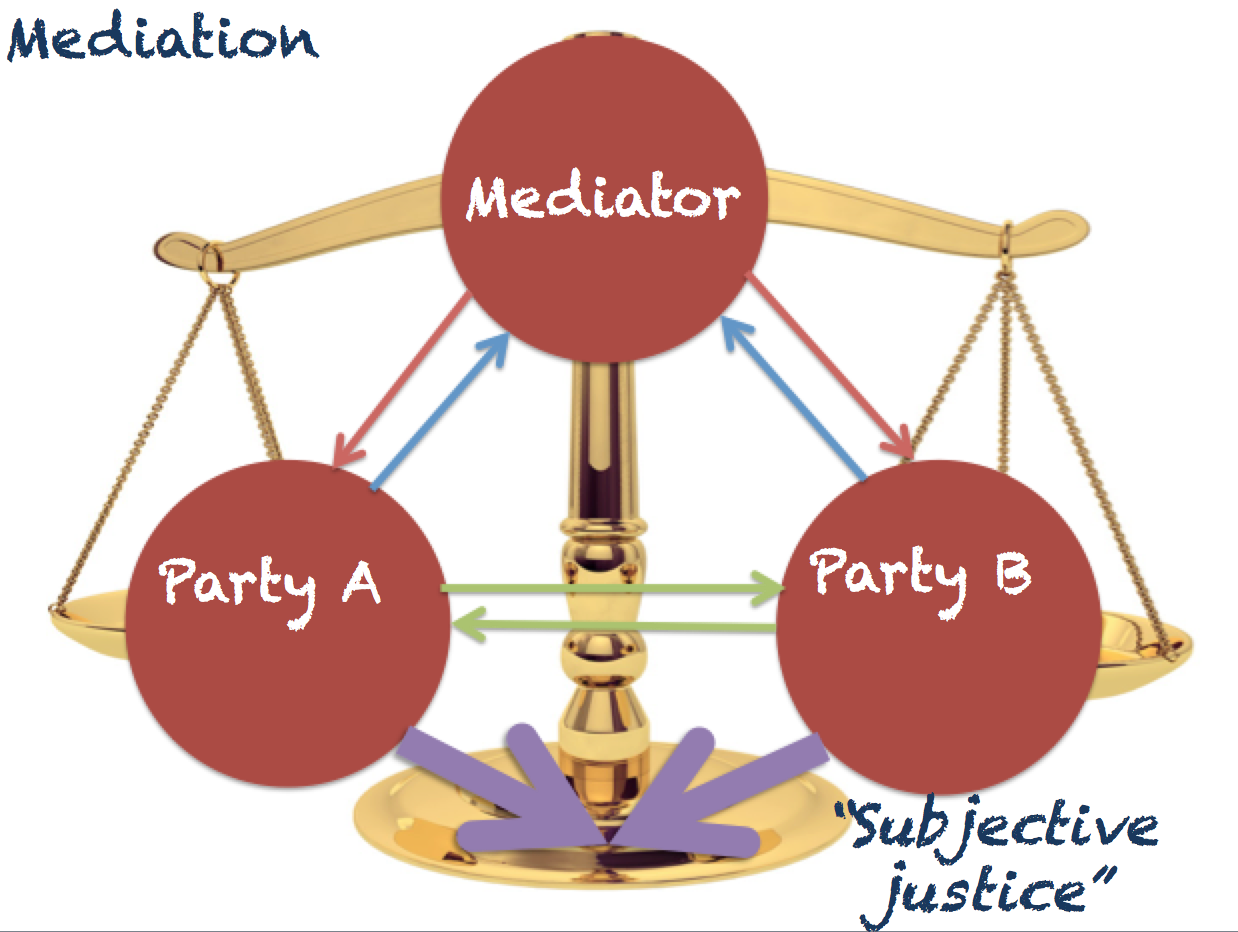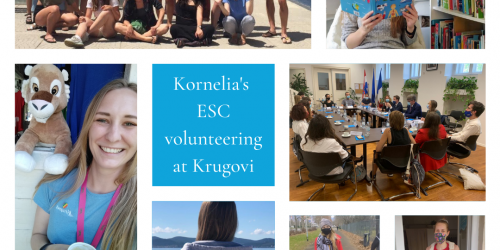Conflict resolution – an inevitable part of our lives
Mediation is a rather informal process but is governed by five main
principles:

1. Voluntary
Voluntary participation and consent are core concepts of
mediation. No-one can be forced to mediate as, if there is no
agreement to mediate, there will be no final agreement either.
Even more importantly, all proposals and agreements within
mediation should come voluntarily from the parties: they suggest
solutions and decide to make concessions. In that way they are
much more capable of understanding their adversaries and take
responsibilty for the process.
2. Impartiality
The mediator should at all times remain impartial and ensure
that the mediation is conducted in a fair and equal way. The
mediator cannot have any private connections with the parties
and has to ensure that he prevents any manipulative, threatening
or intimidating behaviours. It is up to the mediator to guarantee
a safe and supportive environment for mediation and trust begins
with impartiality.
1. In instutionalised mediation (such as court mediation or mediation based
on civil procedure) it is often common for a mediator to act also as a conciliator.
His role is broader and he may give recommendations or propose solutions that
parties may – or may not – accept.

3. Neutrality
It is not enough to be impartial to the parties of the conflict. The
mediator must also remain neutral to its subject. The mediator
should not have any interest in the final outcome of the mediation
and he should not impose any final solution or influence the
participants to adopt his ideas. It is up to the parties alone to
decide what will be the final outcome of the process.
4. Acceptability
If mediation is to work, all of its elements should be acceptable
to the parties. That also includes the mediator. He should be
accepted by the participants and gain their trust. If they reject him,
it is necessary to find another mediator. The final outcome of the
mediation must be accepted by the parties. As long as they do not
reach that settlement, there can be no final agreement between
them.
5. Confidentiality
Mediation is completely confidential and this pretty much sums
up it all. A mediator will never share with outsiders anything he
learned during mediation. The mediator will also not disclose any
information he obtained from one party to the other: only the
parties to the conflict decide what they want to share with each
other.

Inerest, position, needs
• What does the student WANT (their position)?
e.g. “I WANT TO WEAR PIERCINGS!”
What does the school WANT (their position)?
e.g. “I WANT TO BAN WEARING PIERCINGS!”• Student: WHY do you want to wear piercings (their interest)?
e.g. “I want to express my identity!”• School: WHY do you want to ban wearing piercings (their
interest)?
e.g. “We have a dress code that students must follow so they
look smart.”
Introduce and explain the idea that interests are based on needs, and
then go on to highlight the “5 CORE CONCERNS” that underpin needs
as detailed in the ”Definitions and examples” chapter that goes with
these workshops.
• APPRECIATION: do I feel valued?
• AUTONOMY: am I free to make my own choices?
• AFFILIATION: do I feel like I belong?
• STATUS: what is my position compared to others?
• ROLE: am I happy with who I am?

Read more in: HANDBOOK ON CONFLICT RESOLUTION EDUCATION FOR YOUNG PEOPLE – First ADR kit






